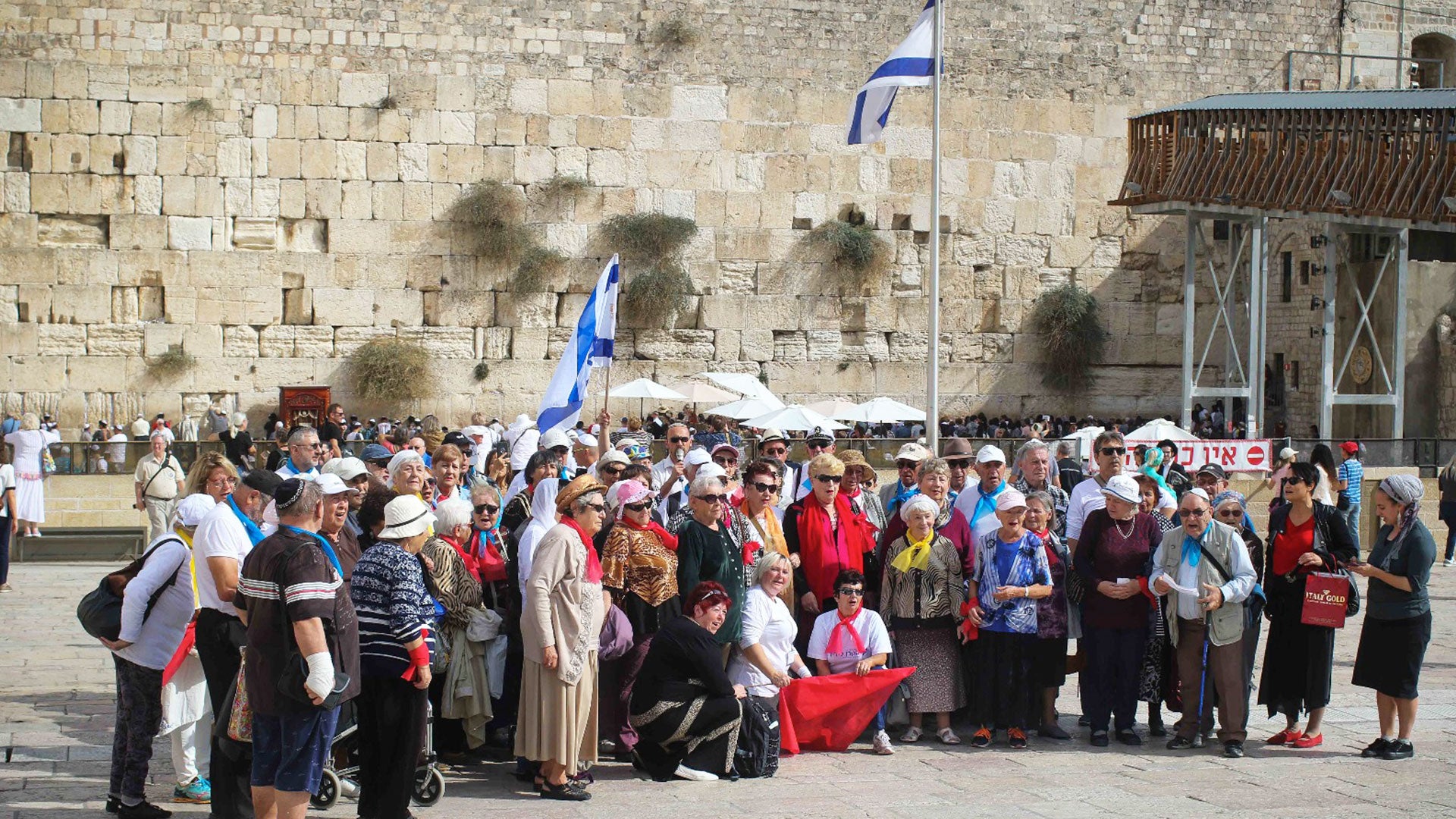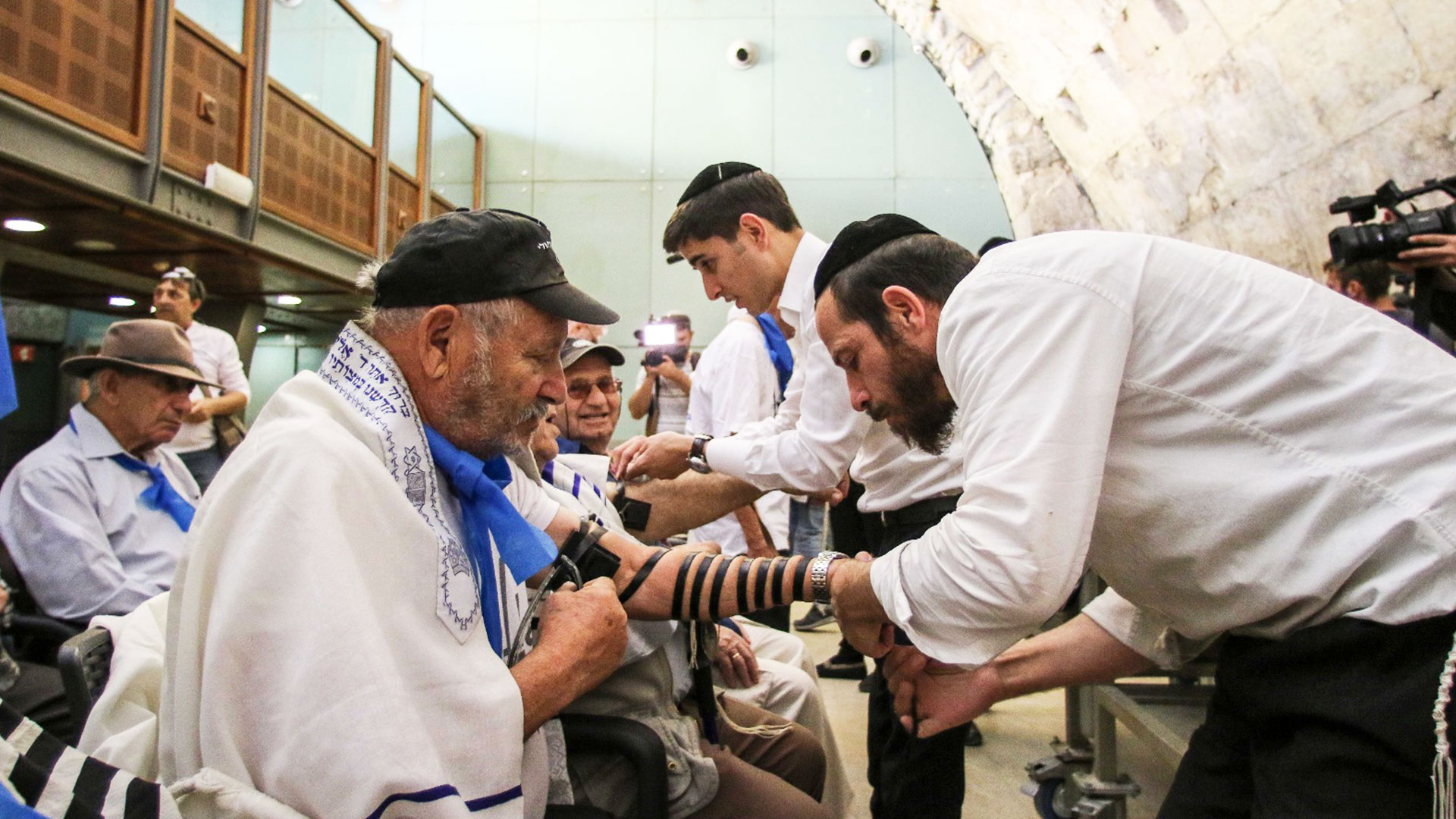
70+ Years Later, Holocaust Survivors Celebrate Bar Mitzvah at the Western Wall
JERUSALEM, Israel – Forty-five elderly Holocaust survivors celebrated his or her Bar/Bat Mitzvah Monday morning at the Kotel (Western Wall) in Jerusalem's Old City.

In Jewish life, a Bar Mitzvah represents a rite of passage to adulthood. For boys, the ceremony takes place on their 13th birthday and for girls, the Bat Mitzvah is a year earlier at age 12. Not so for these survivors, who were children when the Nazis rounded up Jewish men, women and children, packed them into cattle cars and shipped them off to death camps.
The event, co-sponsored by Israel's Ministry for Social Equality, the Western Wall Heritage Foundation and the International Fellowship of Christians and Jews (IFCJ), marked a milestone in the lives of these elderly survivors of the Gestapo reign of terror.

Their responses to the event showed just how much it meant to each one of them.
Men donned tefillin (phylacteries) – two small leather boxes, one for the arm and the other for the forehead – held in place by leather straps.

records the biblical basis for donning tefillin.
"You shall love the Lord your God with all your heart, with all your soul, and with all your strength. And these words which I command you today shall be in your heart. You shall teach them diligently to your children and shall talk of them when you sit in your house, when you walk by the way, when you lie down, and when you rise up. You shall bind them as a sign on your hand, and they shall be as frontlets between your eyes. You shall write them on the doorposts of your house and on your gates."
Participants also had an opportunity to tour the Western Wall Tunnels.
Several participants explained what Monday's ceremony meant to them.
One woman named Aspir Ravicher said it wasn't possible to contemplate a Bat Mitzvah in her youth.

"We ran away with nothing but the clothes we had on us," the IFCJ quoted Ravicher as saying. "We had nothing; we were hungry all the time; we lived in a crowded place. I remember that it was mostly cold and I was very hungry."
Another survivor named Semyon Liebman, who fled with his family from St. Petersburg and later returned when it was safe, said he felt "like a child" at the Kotel.
"When we came back it was forbidden to talk about Judaism or anything about the Bar Mitzvah so we did not talk about it at all," he recalled.
A third participant, Alexander Buchnik, told the IFCJ how his mother struggled to keep her family alive after the war. "We could not think about it [Bar Mitzvah] at all," he said. Buchnik immigrated to Israel in 1994.
"I thought about it during the course of my life," he said, "and all my life I felt that I missed it so much."
Rabbi Yechiel Eckstein, founder and head of the IFCJ, called the event "inspiring."
"I find it difficult to think of anything more inspiring that elderly Holocaust survivors who receive a late Bar and Bat Mitzvah celebration in the holiest place for the Jewish people, after surviving the terror of the Nazis and having lost their childhood, stolen from them," Eckstein said.



